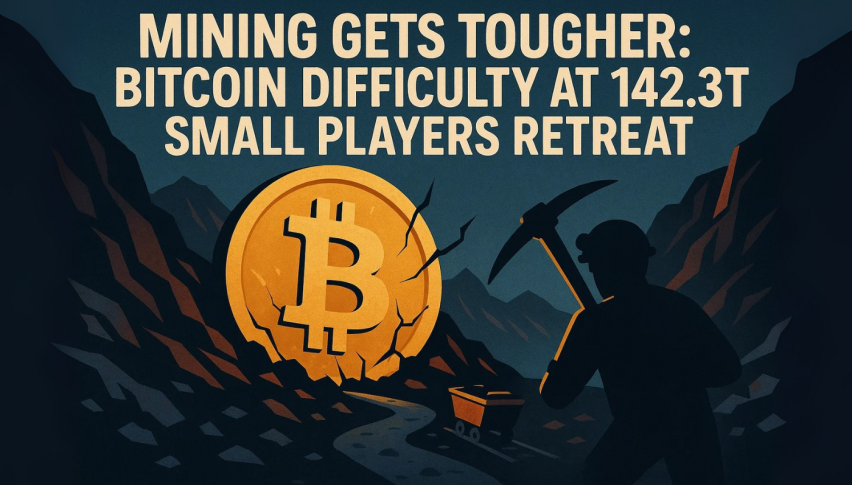Mining Gets Tougher: Bitcoin Difficulty at 142.3T, Small Players Retreat
Bitcoin mining has gotten so hard that even publicly traded companies are struggling. On Friday, mining difficulty...

Quick overview
- Bitcoin mining difficulty has reached an all-time high of 142.3 trillion, making it increasingly challenging for miners, especially smaller operators.
- Governments are entering the Bitcoin mining space, leveraging surplus energy to compete with private companies, which may lead to further centralization of mining power.
- Energy companies are integrating Bitcoin mining into grid management, allowing them to stabilize energy supply while gaining a competitive edge over traditional mining firms.
- The current landscape indicates a shift in power from small miners to state-backed programs and energy providers, as operational costs continue to rise.
Bitcoin mining has gotten so hard that even publicly traded companies are struggling. On Friday, mining difficulty—the measure of how hard it is to validate blocks on the blockchain—hit an all time high of 142.3 trillion according to CryptoQuant.
This follows consecutive records in August and September as a wave of new hashrate was deployed. At the same time, Bitcoin’s hashrate went above 1.1 trillion hashes per second, the network is getting more secure and competitive.
For many operators the combination of high difficulty and energy intensive hardware is becoming unsustainable. The cost of running high end mining rigs is going up and squeezing margins for smaller miners and reshaping the competitive landscape.
Governments Enter the Mining Game
One of the most notable developments is the growing role of governments in Bitcoin mining. Countries with surplus or subsidized energy are using this to compete with private companies.
🚨 Bitcoin mining difficulty just hit a new ATH: 142.3T
📈 Up 30% since the start of the year
➡️ Mining BTC is more competitive than ever.
➡️ Efficiency upgrades + high BTC price keep miners online.
➡️ But rising difficulty also makes some miners look at altcoin mining for better… pic.twitter.com/1vGUZq3Lgu— ZC MINER (@zc_miner) September 22, 2025
Examples:
- Bhutan: Using hydropower to mine Bitcoin.
- Pakistan: Announced in May to allocate 2,000 MW of excess energy for mining.
- El Salvador: Tapping geothermal energy from volcanoes to power its mining initiatives.
This is a structural shift: while small and mid sized miners are struggling to stay afloat, state backed programs have resources private companies can’t match. This will further centralize mining power.
Energy Companies Get an Edge
Energy infrastructure providers are also reshaping the market. In Texas, electricity companies are starting to integrate Bitcoin mining into grid management, working with the Energy Reliability Council of Texas (ERCOT).
$BTC mining just got harder than everMining difficulty: record high 142.3T with a Hashrate: rmmm 1.1T H/s
Cheap power = big advantage.
Governments & energy companies (Pakistan, Bhutan, El Salvador, Texas) are stepping in, making it tougher for small miners to compete.#Crypto pic.twitter.com/xc6iihrGl3
— Daily Bitcoin Analysis 🔮🏅 (@helixcharts) September 21, 2025
By using mining rigs as controllable load resources they can:
- Absorb excess energy during low demand periods.
- Power down during peak consumer demand to stabilize the grid.
- Make profit without exposure to energy price fluctuations.
This vertical integration is a big advantage over publicly traded mining companies who have to buy energy at market prices. As a result many companies are losing ground to entities that combine mining with energy production.
With mining difficulty and hashrate at all time highs, the pressure on traditional miners is not going to ease. The balance of power in Bitcoin mining is shifting—away from small operators and towards governments and energy providers with a structural cost advantage.
- Check out our free forex signals
- Follow the top economic events on FX Leaders economic calendar
- Trade better, discover more Forex Trading Strategies
- Open a FREE Trading Account
- Read our latest reviews on: Avatrade, Exness, HFM and XM


